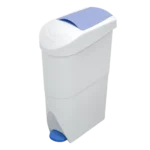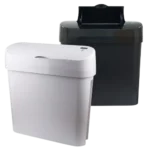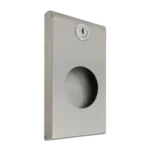Sanitary waste collection
Get a FAST & FREE quote for sanitary waste collections for your business
Just enter your postcode…
Get a FAST & FREE quote for sanitary waste collections for your business
Just enter your postcode…
Start saving now
Our waste experts specialise in connecting businesses with the best bespoke waste services in their area. Here are the top reasons businesses choose to have a dedicated sanitary waste collection service.

Signing a contract with one of our vetted waste collection providers helps ensure compliance with the strict sanitary waste obligations for businesses.

This service is essential to keep your restrooms hygienic, convenient and pleasant. Employees appreciate having the necessary disposal bins at hand.

It ensures that your sanitary waste ends up appropriately landfilled or incinerated and not blocking your plumbing or littering the streets.
In most towns and cities, businesses have a variety of options for sanitary waste collection providers.
Below are the top three considerations when selecting a sanitary waste collection company.
If you would like to discuss the options available in your area, simply enter a few details above to request a call back from our experts.

The best sanitary waste collection providers offer a complete liner exchange service, where all sanitary waste bins are cleaned on-site before a new liner is inserted. Consider whether your business could benefit from this comprehensive service.

Major commercial waste firms such as Biffa and Veolia offer regular sanitary waste collections alongside their general waste and dry mixed recycling collections. Consider the convenience of consolidating all your waste services with a single provider.

Research the provider’s industry experience and customer reviews to determine whether they offer a reliable sanitary waste collection service. Actual customer reviews on Trustpilot provide an excellent way to learn what other local businesses say about the provider.
Workplace regulations mandate that all business premises must provide sanitary waste bins in female and unisex toilets used by customers and staff.
Businesses generating more than 7kg (approximately one full bin bag) of sanitary waste per week are required to arrange a dedicated sanitary waste collection.
Smaller businesses producing less sanitary waste may dispose of it within their general business waste collection.
The following types of businesses typically use dedicated sanitary waste bin collections:

Female and unisex toilets within the office environment must have sanitary waste bins. Larger offices are required to segregate sanitary waste and arrange for regular collections.

Sanitary waste bins must be installed in private bathrooms within hotel rooms, as well as in toilets in public facilities and staff bathrooms. Automatic bins should be considered for disabled toilets.

Colleges, schools (waste minimisation in schools), and universities must provide sanitary waste bins in female toilets. Sanitary waste should be consolidated into a larger bin and prepared for collection.
The following types of sanitary waste bins are recommended for female and unisex toilets used by both staff and customers.
The size of these bins typically ranges from 5–10 litres for small bathrooms to up to 20 litres for frequently used public toilets.

The most typical sanitary bin of restrooms across the UK. It typically has a pedal-operated lid to increase hygiene.
Picture Source: Washroom Hub

Instead of being pedal-operated, these bins feature sensors that automatically open the lid when approached, providing a touch-free disposal option. This is preferred in disabled toilets where pedals may not be practical.
Picture source: Washroom Hub

Single-use containers are made from disposable materials and are ideal for temporary setups, such as fairs and festivals.
Picture source: Washroom Hub

Portable bags can be used to temporarily and discreetly store personal sanitary waste in the absence of appropriate bins.
Picture source: Washroom Hub
After your waste carriers collect your commercial sanitary waste, taking all necessary precautions, they will transport it into a landfill or incineration (energy recovery), depending on what facilities are available locally and who they contract with.
Your carrier will provide you with a waste transfer note to demonstrate your compliant disposal of the sanitary waste.
Our business waste experts answer commonly asked questions on sanitary waste collections in the UK.
Sanitary waste bins should be emptied regularly to maintain hygiene and prevent odours. The frequency depends on the volume of waste generated and the size of the bins.
In high-traffic areas of your business or institution, bins need emptying on a daily basis, while in lower-traffic areas, weekly or bi-weekly servicing might be sufficient. The bins should also be cleaned and disinfected periodically.
Sanitary waste is considered difficult to recycle because it is both “offensive” and a composite of various materials, including plastics, latex, textiles, and paper. Separating these components individually is resource-intensive and would require unhygienic exposure to the waste.
Emerging recycling technologies and Extended Producer Responsibility will certainly enhance the recyclability potential of sanitary wastes in the UK, but they are likely not as high on the priority list as electronics battery recycling (black mass).